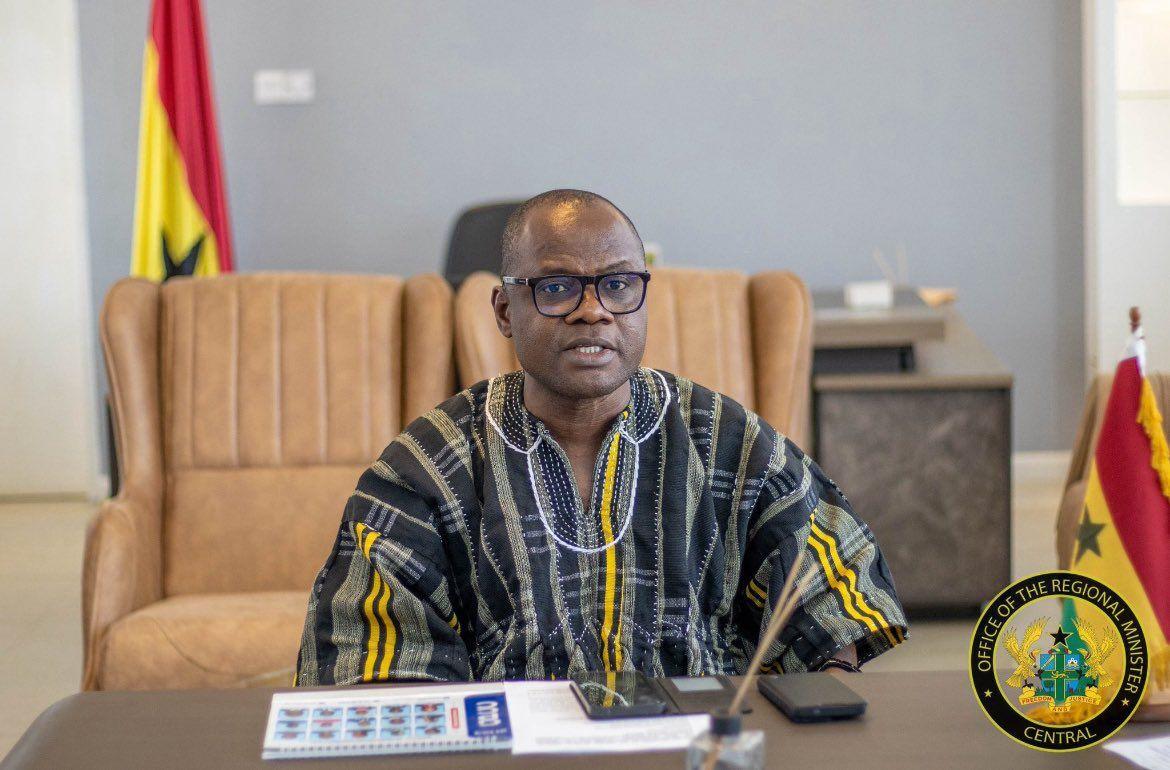Africa-Press – Ghana. Mr Ekow Panyin Okyere Eduamoah, the Central Regional minister, has directed Metropolitan, Municipal, and District Assemblies (MMDAs) in the region to take immediate and practical steps to reposition themselves to leverage government’s 24-Hour Economy policy.
With immediate effect, he has directed the assemblies to identify and designate local economic zones, which would operate for extended hours, and also work to improve street lighting and security in commercial areas.
“You have the duty to also facilitate permits for night-time operations, and support Small and Medium Enterprises (SMEs) with infrastructure and logistics to stimulate their activities,” he added.
The 24-Hour Economy policy is a flagship initiative of the government targeted at boosting productivity, creating jobs, and stimulating economic growth.
Companies and institutions, both public and private, which opt to partake in the initiative would be incentivised to work round-the-clock in key sectors such as manufacturing, agro-processing, retail, health, and public services.
“MMDAS are also encouraged to align their local development plans with the national 24-Hour Economy agenda to attract central government and private sector support,” the regional minister insisted.
He issued the directives at his maiden meeting with members of the Central Regional Coordinating Council in Cape Coast.
The council deliberated on a raft of development issues across various sectors including health, education, security and the economy, reflecting on the past and planning for the future.
Mr Eduamoah was of the firm belief that the 24-Hour Economy policy held the key to unlocking the economic potential of the region in various sectors and cutting down unemployment among the youth.
Backed by figures, he underscored the critical importance of agriculture and agro-processing to the Ghanaian economy and made strong case for greater investment in the sector.
He noted that agriculture directly supported more than 60 per cent of households in the Central region alone, where the people cultivated a variety of crops, engaged in livestock and poultry production, and undertook artisanal and marine fishing.
To that end, he entreated the MMDAs to deliberately devote more resources and attention to stimulate the sector.
Touching on the state of roads, the regional minister announced that actions had already commenced to construct and reshape critical roads in the region, adding that roads connecting markets and agricultural zones would be prioritised.
While at that, he urged Metropolitan, Municipal and District Chief Executives (MMDCEs) to use the DRIP equipment to construct and maintain access roads in their areas.
“Additionally, MMDCEs along the Accra-Takoradi Highway must take urgent steps to prevent unregulated development near the highway to allow for smooth road dualisation,” he directed
“Unfortunately, despite repeated warnings, new structures continue to emerge along this corridor,” he said.
Mr Eduamoah indicated that President John Mahama, being a pillar of human transformation, had called for the data of stalled projects and ones at various stages of completion for compilation and the necessary action.
He noted that all old or existing projects were to be completed before new ones are started in all institutions.
On galamsey, Mr Eduamoah expressed regret that some metropolitan, municipal and district chief executives were directly or indirectly participating in the menace and described it as ‘unacceptable.”
He said the Regional Security Council had formed a committee to reclaim lands destroyed by galamsey activities for agricultural purposes and urged the DCEs to be vigilant and support the move to increase yields for food security and job creation.
For More News And Analysis About Ghana Follow Africa-Press







